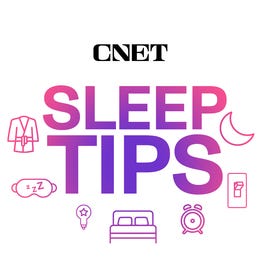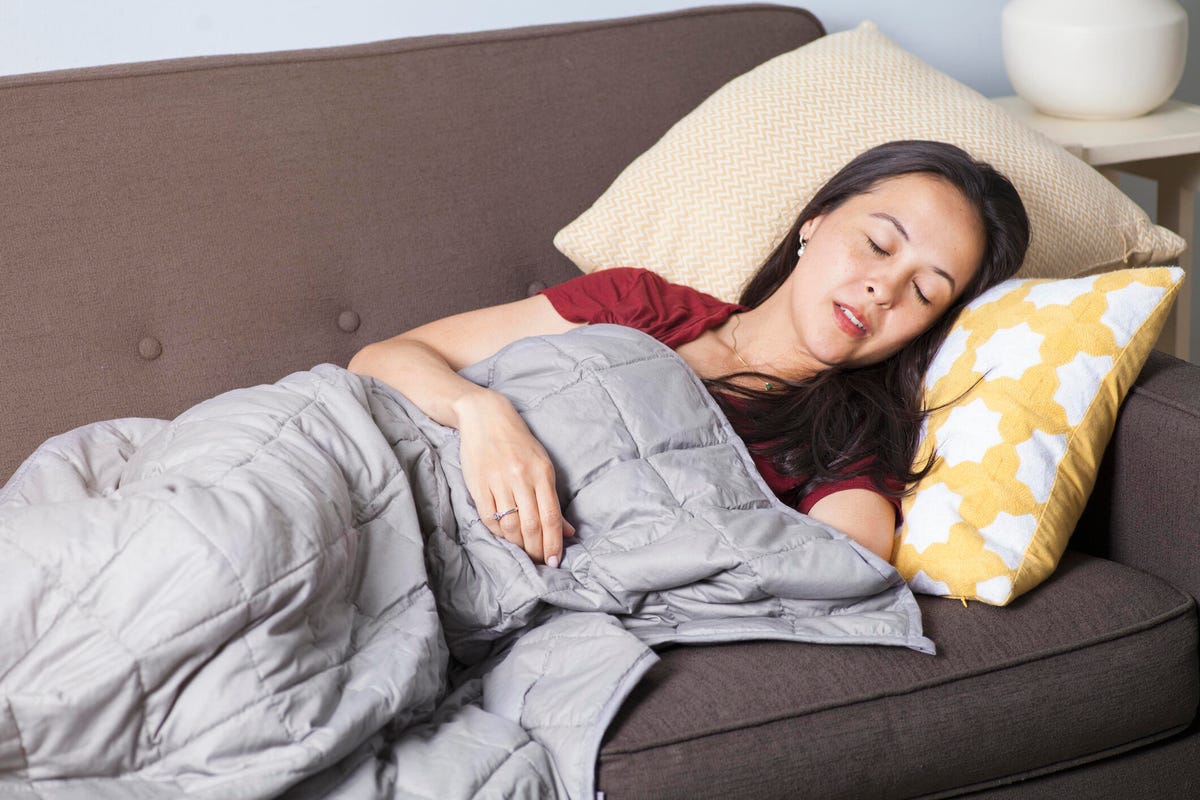From everydayhealth.com
You lie awake at night staring at the ceiling. You feel like you’re cursed — but you’re not alone. Experts estimate that between 1 in 10 and 1 in 3 people suffer from some degree of insomnia, meaning they have trouble falling asleep, staying asleep, or wake up earlier than they intend to in the morning (or a combination of the above).
There are many reasons why you might be struggling to fall asleep or stay asleep through the night, including stressful life events (such as getting fired from a job) and health issues. What’s more, those periods of short-term insomnia that last just a few days or a week (acute insomnia), can turn into longer-term insomnia, which is known as chronic insomnia, meaning your sleep troubles last beyond the initial stressor.
But you don't have to suffer through short- or long-term insomnia, and you shouldn't. Lifestyle changes, therapies, and other treatments do exist to retrain your mind and body to get the sleep you need to stay not only happy but healthy, too.
Here are some of the treatment options your doctor or a sleep specialist might recommend if you have insomnia.
Sometimes Lifestyle Changes Alone Can Help With Insomnia
For a mild case that’s been a problem only for a few days or weeks, doctors will likely recommend a few lifestyle changes to promote better sleep.
Hrayr P. Attarian, MD, a sleep medicine specialist at Northwestern Medicine in Chicago, says he always starts by analysing a person’s sleep and wake habits.
Here are some good sleep hygiene practices Dr. Attarian recommends.
- Stick to a sleep schedule. This means going to bed and waking up around the same time, whether it’s Wednesday or Sunday.
- Get natural light. “Something that’s happened a lot since 2020 is that because a lot of people are now working from home, there is no daily routine,” Attarian says. For a lot of people whose work schedules have changed, there’s no getting outside first thing in the morning to physically get to an office or place of work. “But one thing that’s very important is to have a routine that involves some exposure to outside natural light.” Morning exposure to natural light signals to your brain that it’s time to be awake and helps keep your body clock on schedule, which means later that evening you'll be more likely to fall asleep at an appropriate time.
- Avoid anything that messes with your ability to fall asleep. This means substances like caffeine and tobacco, for instance, that can stay in your system for eight hours. And don’t rely on a nightcap, either. “You should steer clear of alcohol close to bedtime,” says Attarian. He suggests leaving at least an hour per serving of alcohol between imbibing and bedtime.
- Limit daytime naps to no more than 30 minutes.
- Turn off electronics at least one hour before bedtime.
- Reserve the bed solely for sleep and sex.
- Create a sleep-promoting environment that’s quiet, dark, and cool.
If you’re doing all that and still having trouble, don’t lie in bed for hours struggling.
If you are wide awake in bed and worrying about not being able to sleep, get up after 20 to 30 minutes and do something relaxing, says Attarian. But if you’re comfortable, relaxed, and feel yourself starting to drift off, stay in bed, he adds.
If you do get up, Attarian says, it’s important not to do anything productive, like chores. “When you accomplish something in the middle of the night on your to-do list, whether it’s folding the laundry or cleaning the kitchen, your brain rewards you for being up in the middle of the night,” which can make you more likely to establish a habit of night activity, he explains. Instead, do something relaxing that will calm you down, like reading or gentle stretching. And do stay off your phone, computer, or other devices with a screen; the blue light they emit can further mess with your sleep by promoting wakefulness.
Cognitive Behavioural Therapy Is the Gold Standard for Treating Chronic Insomnia
If improving sleep hygiene and other lifestyle changes alone don’t help with your sleep, the next step is cognitive behavioural therapy to improve sleep and reverse chronic insomnia.
“Cognitive behavioural therapy basically retrains your brain not to associate the bed and the bedroom with not sleeping,” says Attarian. “Its effectiveness, overall, is either equal to medications for the short-term or better than the meds. And definitely in the long-term, cognitive behavioural therapy is significantly better than meds.”
The American College of Physicians recommends cognitive behavioural therapy as a first-line treatment for insomnia.
According to a research review, cognitive behavioural therapy was better at improving sleep efficiency than common drugs, and led to an extra 30 to 60 minutes of sleep time when the two treatment strategies were compared in clinical trials.
A paper published in December 2019 in the journal Sleep Medicine Reviews found that cognitive behavioural therapy produced clinically significant effects for insomnia that lasted up to one year after the therapy.
And a 2015 study found that just one session of cognitive behavioural therapy plus a self-help pamphlet effectively treated about half the cases of acute insomnia.
Cognitive behavioural therapy teaches techniques to help you relax, control your breathing and mood, slow down your racing mind, and get to sleep.
The American Board of Sleep Medicine has a helpful list of therapists on its website. Therapy is usually offered as a series of in-person sessions over the course of four to six weeks, but some online programs may be helpful for people living in remote areas or for those without insurance.
Attarian notes, however, that there’s a shortage of sleep medicine doctors who offer CBT for insomnia (a fact documented in a paper published in 2020 in the Journal of Clinical Sleep Medicine). “That’s a big problem we have,” Attarian says.
Prescription and OTC Sleep Aids Can Help, but They Are Meant to Be Short-Term Solutions
Before turning to medication, your doctor should rule out other possible health issues. Insomnia is often a side effect of an underlying issue, such as depression or an anxiety disorder, in which case an antidepressant might be more beneficial than a sleep aid.
Attarian says sleep apnoea and medication side effects are also common culprits that can lead to insomnia.
In some cases, over-the-counter or prescription sleep medication can be helpful if used for a short period of time while you establish a healthier sleep routine and form good sleep habits. Ideally, once you do get into a routine, you can stop taking the medication and still continue to sleep well.
If medication is prescribed, take it for as little time as necessary — three months max — since it can be habit forming. And be sure to discuss the medication’s purpose and side effects with your doctor.
For example, some medicines may help you fall asleep but leave you dealing with grogginess in the morning. Others can cause complications, such as sleepwalking or sleep-driving. And some drugs have been found to increase mortality risk, regardless of pre-existing conditions, according to research.
Your doctor should discuss any previous, current, or potential mental health problems with you before prescribing a sleep aid, as some of these medications can heighten the risk of depression and suicide, according to a study published in the January 2017 American Journal of Psychiatry. Types of prescription sleep aids include, according to Stanford Medicine and the guidelines published in 2017 in the journal American Family Physician:
“You should absolutely talk to your doctor before trying any type of over-the-counter medicine for insomnia,” says Attarian.
Integrative Medicine Techniques and Supplements for Insomnia
For some people, integrative medicine techniques and supplements may help with insomnia, either alone or in tandem with other treatment approaches. Some have more evidence to support their use than others. It’s a good idea to talk to your doctor before trying integrative or complementary therapy techniques to help with insomnia, particularly if you are taking other medication. Remember that some supplements can interact with medications, rendering them either ineffective or dangerous.
Some of these integrative-medicine insomnia remedies and supplements include:
Herbal remedies, like valerian or chamomile Some evidence shows chamomile (either drunk in tea form or used as an essential oil in aromatherapy) can have sedative and sleep-promoting effects. The same is true for valerian supplements, according to Mayo Clinic. Note that this research, for these and other herbal remedies, suggests rather than confirms a benefit. Unlike other insomnia treatment options, less is known about who these remedies might work for, appropriate dosing, and side effects. Additionally, these products aren’t regulated by the FDA like drugs and medications are, Attarian says. As with other at-home treatment options, it’s a good idea to talk with your doctor before you try herbal remedies or supplements for sleep.
Biofeedback Biofeedback allows doctors to track biological reactions in your body, such as your heart rate, breathing, and muscle tension, according to Mayo Clinic. Sleep specialists may use this information to identify patterns that are affecting your sleep and develop adjustment strategies.
Yoga Studies have shown yoga may improve sleep quality. The practice may also lower stress and improve physical health. “In specific cases, a natural modality, like yoga, can help,” says Attarian.
Mindfulness meditation Mindfulness meditation involves using breathing methods, guided imagery, and other techniques to help you become more aware of thoughts, sensations, and feelings. Research has shown that mindfulness-based stress reduction programs improve insomnia and overall sleep patterns.
Hypnosis Hypnotherapy is a treatment that helps you feel relaxed and more open to suggestion. Several small studies have found that hypnosis performed by a trained professional had a positive effect on sleep outcomes.
Massage Massage therapy has been shown to improve sleep quality, sleep disturbance, and daytime dysfunction — with a small study finding it may even work better than certain drugs for certain people with insomnia.
Acupuncture In acupuncture, tiny needles are inserted into specific points in the body, and in studies this therapy helped symptoms of insomnia. One review found that acupuncture may improve sleep by acting on specific neurotransmitters in the body.
Can My Insomnia Be Cured?
Absolutely. It may not be easy though, as curing insomnia often means improving your sleep hygiene and establishing habits that are more conducive to good sleep. And habits, especially routines you follow every day, can be tough to break.
But it is possible.
“The key is recognizing it early and intervening early,” Attarian says. The longer it goes on, the higher the chance insomnia will lead to other complications and the harder it can become to treat, he explains.
https://www.everydayhealth.com/insomnia/what-when-you-cant-sleep-all-about-insomnia-treatments/



:max_bytes(150000):strip_icc():format(webp)/GettyImages-1035551338-ca4cfd9643cd4fbeb479b49a535df185.jpg)